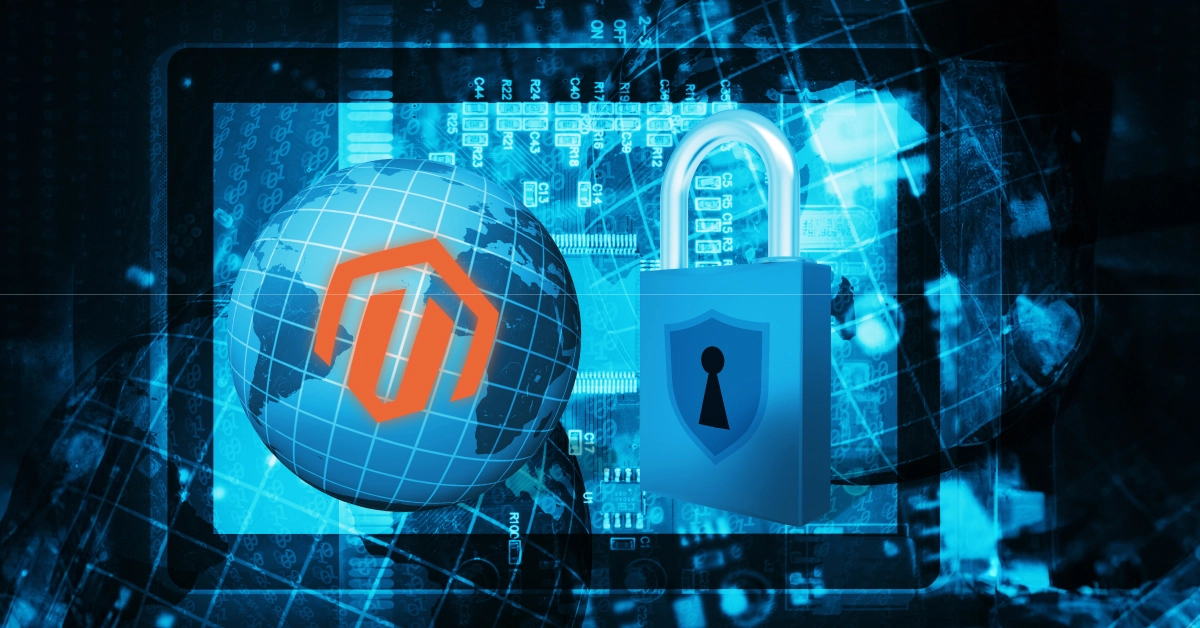
For any E-Commerce business, few situations are more damaging than a compromised website. A single breach can expose customer data, disrupt trading, undermine trust, and cause financial losses that take months to recover from. Magento is a powerful and flexible platform used by tens of thousands of retailers, but like any system, it must be configured, maintained, and monitored correctly to remain secure.
Why Magento Security Matters
Magento is widely used because it combines performance, scalability, and customisation. However this popularity also attracts unwanted attention from attackers who exploit weaknesses in outdated code, poorly configured extensions, or insecure admin access.
When a breach occurs, the consequences vary greatly:
- Data exposure – access to customer records, email lists, order history, and marketing data can enable targeted scams or give competitors an unfair advantage.
- Site modification – attackers may alter pricing, remove contact information, replace product pages, or break images and links, all of which frustrate customers, reduce orders and affect search rankings.
- Payment interference – unpatched stores risk card skimming attacks that silently intercept payment data.
- Full website destruction – in the worst cases, hackers will corrupt files or databases, leaving the business offline until a clean backup is restored.
Backups are essential, but they only restore you to the state of the last safe version. They do not fix the underlying vulnerability. Prevention is always more cost effective than recovery.
Understanding Magento Vulnerabilities
Vulnerabilities appear when software behaves in a way it shouldn’t. Magento may contain two types of issues:
- Functional errors – the system fails to deliver intended functionality.
- Security errors – the system allows behaviour that should not be possible, such as unauthorised access to files, admin features, or customer data.
Security vulnerabilities almost always stem from one of these sources:
- Outdated core software
- Unsecured or abandoned third party extensions
- Weak access controls, passwords, or user permissions
Once an attacker gains even limited access, they can observe, modify, or destroy data. Observational access is difficult to detect because the site continues to operate normally. By the time symptoms appear, considerable data may already have been harvested.
Magento Security Measures
Magento includes strong built in security features, but they only work when configured correctly. The following practices form a solid security baseline for any modern Magento store.
Keep Magento Up to Date
Security patches and version updates exist to close newly discovered vulnerabilities. Running an outdated installation is one of the quickest ways to invite an attack.
If you cannot upgrade immediately, make sure all relevant security patches are applied in the meantime.
Use Strong Password Policies
Weak passwords remain one of the most common causes of unauthorised access. Magento allows you to define strict password rules within the admin panel.
Enable Two Factor Authentication (2FA)
2FA ensures that even if login credentials are compromised, attackers cannot access your admin panel without a secondary verification code. This significantly reduces the risk of brute force attacks.
Change the Default Admin URL
Leaving the admin panel accessible at /admin makes it a visible target for automated bots. A custom admin path reduces unwanted login attempts and makes it harder for attackers to reach your backend in the first place.
Control Admin User Access
Not every team member needs full admin rights. Use Magento’s role based access control to assign permissions carefully and limit access to sensitive areas of the system. Lock or restrict any account that shows unusual activity.
Restrict Backend Access with IP Whitelisting
If your team operates from known locations, limit admin access to specific IP addresses. This prevents anyone else from even reaching the login screen.
Enable CAPTCHA
Configuring CAPTCHA for both admin and customer login forms helps reduce automated bot attacks and stops malicious scripts from attempting mass logins.
Use Secure Hosting
Magento places a high load on server resources, so secure hosting is crucial. Choose a provider offering:
- regular automated backups
- firewalls and malware scanning
- restricted SSH access
- support for TLS/SSL
- server level patching and monitoring
Run Regular Backups
Backups are essential for recovery. Magento offers system, database, and media backups, but you should also store copies externally in case of server side corruption.
Scan for Malware Regularly
Use reputable scanners to test for vulnerabilities, malware, and suspicious code injections. Automated daily scans can identify issues early before they escalate.
Install Only Trusted Extensions
Extensions can drastically expand Magento’s capabilities, but they can also introduce vulnerabilities. Only use well maintained modules from trusted developers, and remove any that are no longer required.
Get Protected
Magento is a secure and mature platform, but no E-Commerce system is immune to attack.
If you’re unsure whether your Magento website is properly protected, we can help.
BBI Brandboost is an experienced digital marketing and web development agency based in High Wycombe, supporting businesses with secure, well maintained Magento websites.
If you’d like an expert review of your website’s security, get in touch today.